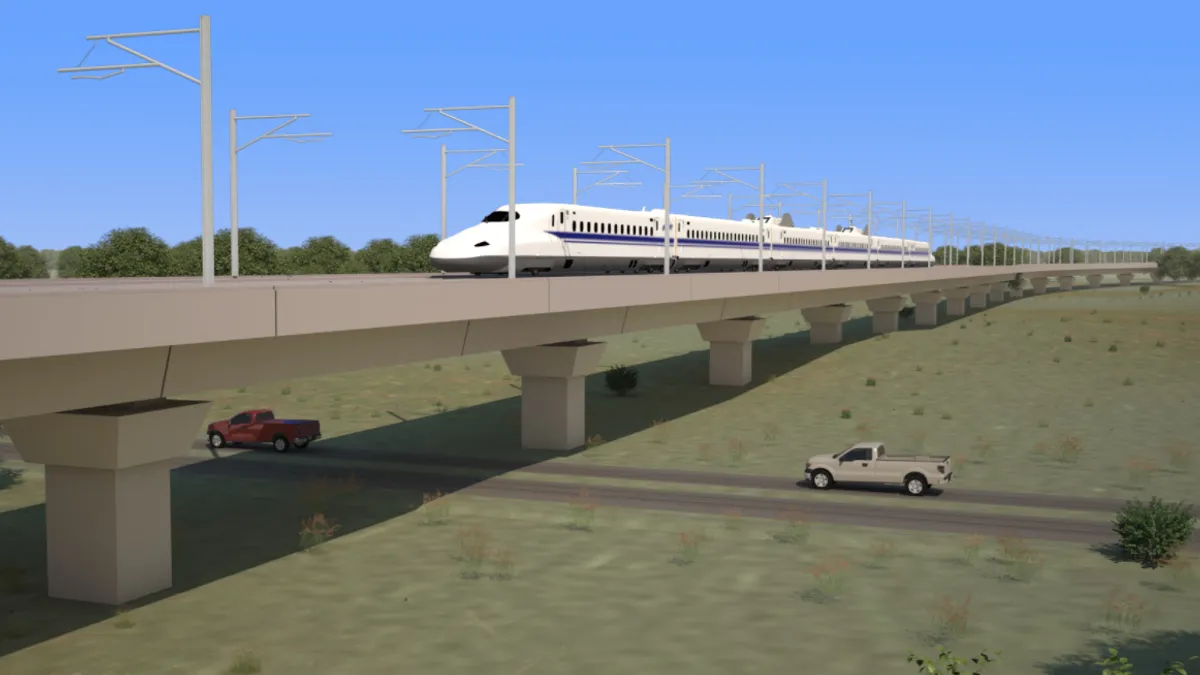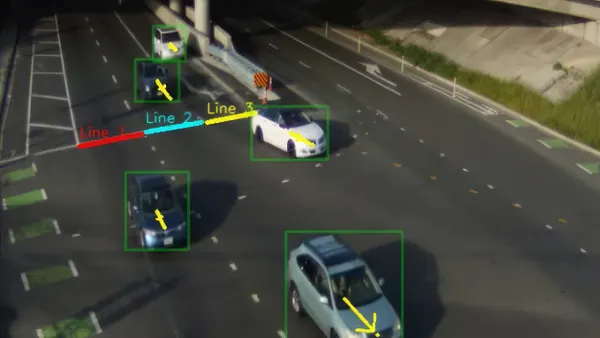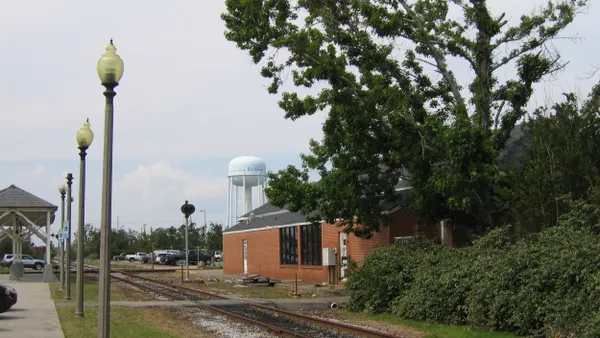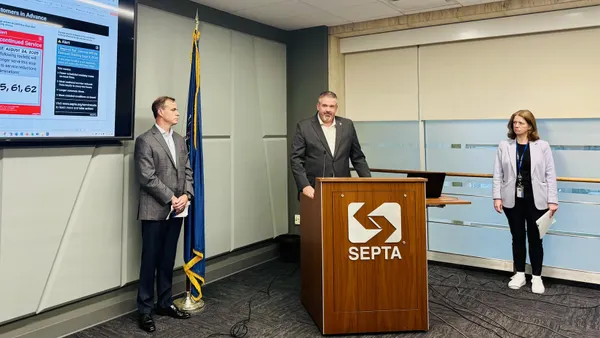Dive Brief:
- Amtrak is now leading a proposed Dallas-Houston high-speed rail project, Andy Byford, Amtrak’s senior vice president of high-speed rail development programs, told reporters at this week’s Southwestern Rail Conference in Hurst, Texas.
- In August, Amtrak entered into a non-binding agreement with Texas Central, the company behind the project, to determine the project’s viability, according to a press release. Amtrak is currently conducting due diligence, Amtrak spokesperson Marc Magliari told Smart Cities Dive.
- Byford is quoted by news outlets saying that if the project goes forward, trains could be running in the early 2030s.
Dive Insight:
Planning for what was originally conceived as a private-sector project began at least 10 years ago when the Federal Railroad Administration started the required environmental review process, but progress stalled with the onset of the COVID-19 pandemic in 2020.
Amtrak entered the picture last year, after bringing Byford aboard to focus on high-speed rail opportunities and strategy in the U.S. Currently, Amtrak’s only high-speed service is along the Northeast Corridor between Boston and Washington, D.C., with top speeds of 150 mph. When new Acela trains enter service this year, they will be capable of running up to 160 mph. Texas Central plans to use Central Japan Railway Company’s Shinkansen trains, which initially will operate at 186 mph.
Byford previously led transit systems in New York City and Toronto, and he served as London’s commissioner of transport prior to joining Amtrak. His appearance at the conference came just days after the White House said in a published statement that the U.S. Department of Transportation and Japan’s Ministry of Land, Infrastructure, Transport and Tourism “welcomed Amtrak’s leadership of the Texas Central High Speed Rail Project.”
But Magliari cautioned that “it's not a done deal.” Terms of the partnership between Amtrak and Texas Central are subject to a non-disclosure agreement, he said. “We're still some distance from making a binding decision to fully engage on this project.”
The project also faces other hurdles. Some landowners along the route have objected to property acquisitions by Texas Central and only about 30% of the land required for the rail line has been obtained. Texas Central owes more than $600,000 in delinquent property taxes, according to the Houston Chronicle.
Still, Byford was optimistic. “I really do think it's viable,” he told NBC 5 Dallas-Fort Worth. “I think it is the most compelling city pairing in the U.S. But if ultimately we can't make the case, we can't raise the money or if people really don't want it, then there are plenty of other viable city pairings.”











